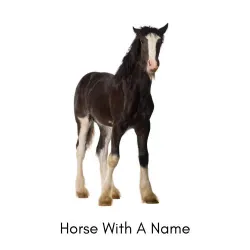As a lifelong horse enthusiast, approaching retirement age for your beloved equine companion can provide a range of emotions.
On one hand, you’ve been fortunate enough to have spent so much time together and built an amazing bond; on the other hand, it may be difficult knowing that they are susceptible to increased health issues as they grow older.
The care and attention we give our horses when they reach this age are crucial in ensuring their overall well-being and continued quality of life.
In this blog post, we will discuss common health problems seen in older horses and how best to manage the different types of conditions that can occur during the later stages of their life span.
What is a common illness in old horses?
One of the most common illnesses affecting older horses is Equine Cushing’s Disease. This condition is caused by a tumor in the pituitary gland that results in excess production of cortisol, an important hormone.
Signs of Cushing’s Disease can include an excessive shedding of hair, increased drinking and urination, laminitis (lameness or stiffness), elevated body temperature, and dullness of coat. As horses age, they become much more prone to developing this disease due to their weakened immune system and decreased capacity for metabolic regulation.
Fortunately, there are treatments available that can help manage the symptoms and reduce their impact on your horse’s quality of life.
What happens when a horse gets too old?
As horses get older, their diet, health, and activities all need to be carefully monitored. This is particularly important once a horse reaches retirement age, as the tendencies of an older horse can change significantly.
Many elderly horses will suffer from decreased vision, hearing, and overall coordination. As such, they may need additional support while exercising and may need to retire from any strenuous activities such as jumping or racing.
Unfortunately, with these changes, a horse often has reduced life expectancy and will eventually have to be humanely put down when its quality of life has become too low for it to continue living comfortably. Though difficult for the owners to accept, managing the changing needs of an aging horse is key to making sure it has a peaceful end-of-life experience.
What are the most common health problems in horses?
Horses are majestic animals, praised for their beauty and agility in many different sports, but even though they can be strong and hardy, it is important to remember that horses, like other animals and humans, can experience health issues.
Lameness from injuries or disease is one of the most predominant problems in horses. Colic is also frequent – this condition can be caused by blockages in the intestines as well as numerous other circumstances.
Other conditions seen in horses include respiratory issues such as heaves (recurrent airway obstruction), parasitic infestations like botfly larvae, equine infectious anemia – which typically results from a bite from another horse – and thrush caused by bacteria buildup on the frog of their hooves.
Fortunately, veterinary science has advanced to a point where treatment for many maladies is available if the right care is taken right away.
What are the signs of an aging horse?
Knowing the signs of aging in your horse can be critical to providing them with the best possible care. As they age, they may become stiff when first getting up and need more warm-up time before engaging in harder physical activity.
They may also gain more fatty deposits on their body, have poor dental health, weakened hooves, and have coat changes. Watching for last-minute lameness or generally reduced performance are other indications that a horse is getting older. By being aware of these signs, you can provide your aged equine with all the care it needs so that it can continue enjoying life to its fullest potential.
Wrapping up!
It’s essential to keep a close eye on older horses and make sure they get the care and love they need. Veterinarian check-ups and blood tests can help spot any health problems before they become serious issues for the horse. With regular exercise, proper nutrition, and lots of affection, older horses can remain active and healthy.
Additionally, it’s important to note that some of life’s toughest lessons are learned from our most beloved four-legged friends; horses teach us patience, understanding, respect, and perseverance. Older horses may move a bit slower or require more tenderness than when they were younger—but with the right owners by their side their best days are still ahead!








